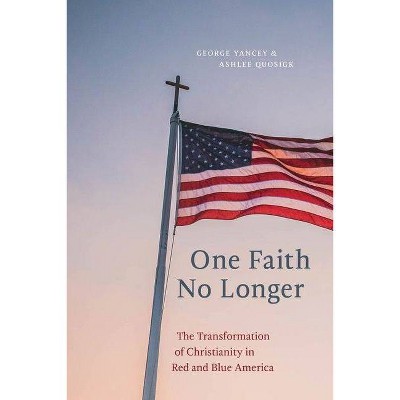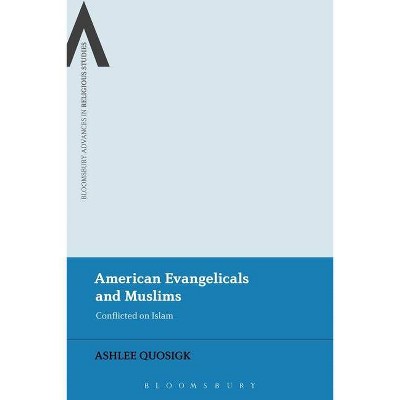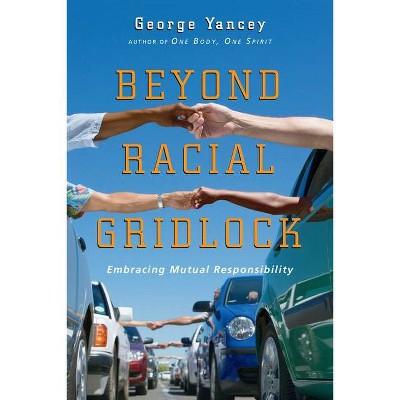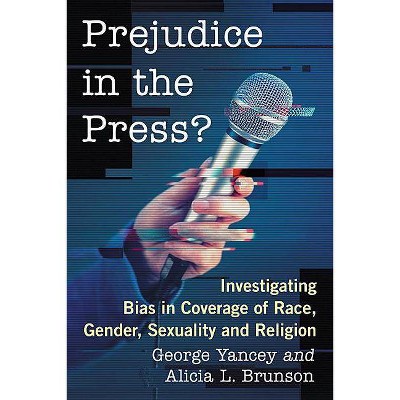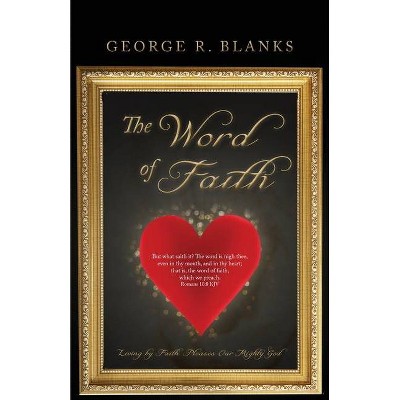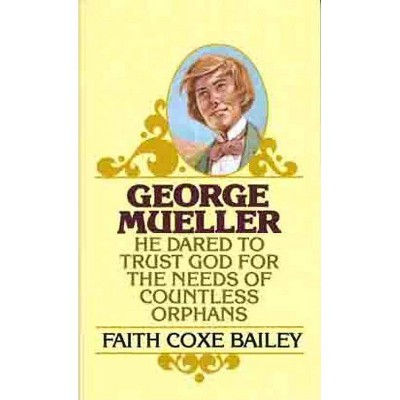One Faith No Longer - by George Yancey & Ashlee Quosigk (Paperback)
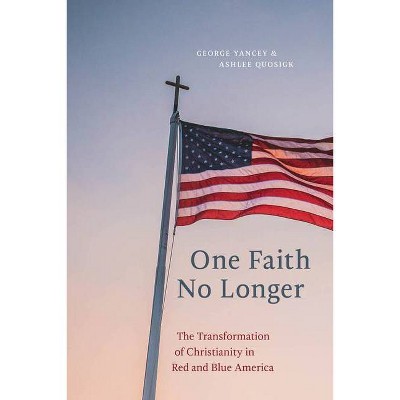
Similar Products
Products of same category from the store
AllProduct info
<p/><br></br><p><b> About the Book </b></p></br></br>"This book investigates how conservative and progressive Christians use their political attitudes and theological beliefs to define their social outgroups and shape their social identities. The core question is the role political and theological values play in the construction of the social identities of conservative and progressive Christians and how those values help members of each group find answers to questions of meaning. The bottom line the authors seek to illuminate in this book is that Progressive and Conservative Christians use entirely different factors in determining their social identity and moral values and we articulate ways in which they differ. The authors utilize a mixed methods approach to explore this question. They highlight how Progressive Christians, whom rely on what we call a Humanistic Ethic of Social Justice, emphasize political values relating to social justice issues as they determine who is part of their in-group, and tend to be less concerned about theological agreement. Conservative Christians, on the other hand, rely on a historical theology emphasizing biblical doctrines, and do not put strong emphasis on political agreement as they determine if you are one of them-their major concern is whether you agree with them on core theological points. This helps answer the question about the nature of the theological divide within Christianity and the degree to which this disagreement leads to distinctive religious groups. Indeed, the authors argue that the way these two groups deal with questions of meaning are so opposed that it is time to regard them as distinct religious groups rather than subgroups under a single religious umbrella. By examining the data, the authors argue that the divide between theologically progressive and conservative Christians is so great that one can realistically think of them as different religious groups"--<p/><br></br><p><b> Book Synopsis </b></p></br></br><p><b>Irreconcilable differences drive the division between progressive and conservative Christians--is there a divorce coming?</b> <p/>Much attention has been paid to political polarization in America, but far less to the growing schism between progressive and conservative Christians. In this groundbreaking new book, George Yancey and Ashlee Quosigk offer the provocative contention that progressive and conservative Christianities have diverged so much in their core values that they ought to be thought of as two separate religions. <p/>The authors draw on both quantitative data and interviews to uncover how progressive and conservative Christians determine with whom they align themselves religiously, and how they distinguish themselves from each other. They find that progressive Christians emphasize political agreement relating to social justice issues as they determine who is part of their in-group, and focus less on theological agreement. Among conservative Christians, on the other hand, the major concern is whether one agrees with them on core theological points. Progressive and conservative Christians thus use entirely different factors in determining their social identity and moral values. <p/>In a time when religion and politics have never seemed so intertwined, <i>One Faith No Longer</i> offers a timely and compelling reframing of an age-old conflict.</p><p/><br></br><p><b> Review Quotes </b></p></br></br><br>Yancey and Quosigk address what makes a distinct, separate religion, as opposed to a variation within a larger faith tradition ... They find that progressive Evangelicals were less comfortable with the descriptor "Evangelical," and were more apt to make common cause with fellow progressives than conservative Evangelicals and to avoid collaboration even where interests converge. Yancey and Quosigk find that religious motivation also diverges: conservatives ground their actions in their desire to pattern their lives on a biblically derived imperative, while progressives look instead to humanitarian ideals.-- "Library Journal"<br><br>In this provocative new book, George Yancey and Ashlee Quosigk boldly argue that progressive and conservative Christians have diverged so much in their politics, theologies, and sources of meaning that we should now think of them as different religions. Bolstered with forensic quantitative analysis and refreshing, original qualitative work, their argument is as compelling as it will be controversial. . . . A must-read for those wishing to learn more about the United States' 'culture war' and the role of religion in it.--Gladys Ganiel, co-author of The Deconstructed Church: Understanding Emerging Christianity<br><br>Traces the fault lines of an entrenched division in Christian identities between progressives and conservatives, explored in the light of divergent attitudes to Islam and Muslims. The bifurcation runs deep, cutting across long-established identities such as 'Protestant, ' 'Catholic, ' and 'Evangelical, ' to the extent of calling into question the continued relevance of the term <i>Christian</i> as a shared label. The authors' prophetic thesis anticipates a permanent parting of the ways--one religion becoming two--which will dramatically reshape the role of faith in America's public life.--Mark Durie, Senior Research Fellow, Melbourne School of Theology<br><p/><br></br><p><b> About the Author </b></p></br></br><b>George Yancey (Author) </b><br> <b>George Yancey</b> is Professor of Sociology at Baylor University and author of <i>What Motivates Cultural Progressives</i> and <i>So Many Christians, So Few Lions</i>. <p/><b>Ashlee Quosigk (Author) </b><br> <b>Ashlee Quosigk</b> is a Visiting Scholar in the Department of Religion at the University of Georgia and author of <i>American Evangelicals: Conflicted on Islam.</i> <p/>
Price History
Cheapest price in the interval: 30 on November 8, 2021
Most expensive price in the interval: 30 on December 20, 2021
Price Archive shows prices from various stores, lets you see history and find the cheapest. There is no actual sale on the website. For all support, inquiry and suggestion messagescommunication@pricearchive.us
